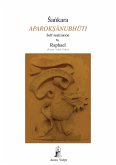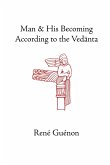The Upani¿ads are an integral part of Vedas, they represent a branch of the primordial Tradition and constitute the essence of Vedanta itself. The expression Vedanta (end of the Vedas) should be understood in the double meaning of 'conclusion', as the Upani¿ads are the last part of the Vedic texts, and of 'purpose', because what is being taught is the ultimate goal of Traditional Knowledge. The central theme of the Upanisads is the quest for the Ultimate Reality, they therefore represent Metaphysics in its real sense. This type of research is not an end to itself, for the Upani¿ads represent ways of contact and tools of realization; to this end they indicate a concise and complete sequence that concedes little or nothing to the analytical mind. The five Upanisads presented in this text - Isa, Kaivalya, Sarvas¿ra, Amrtabindu, and Atharvasira - are commented extensively by Raphael. In his commentary, Raphael frames and broadens all the various points in the context of the traditional Advaita (Non-duality) teaching, and thus provides the western mind with the key to the comprehension of their symbolic, figurative, and analogical language.








